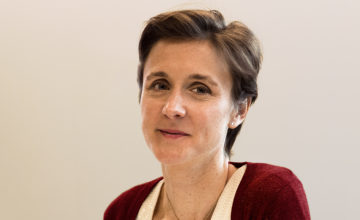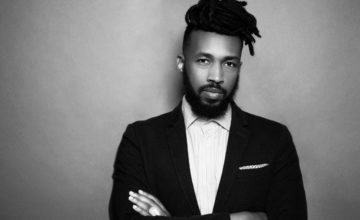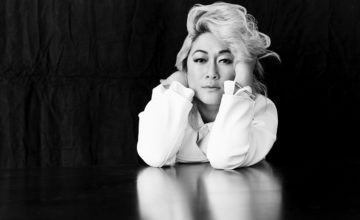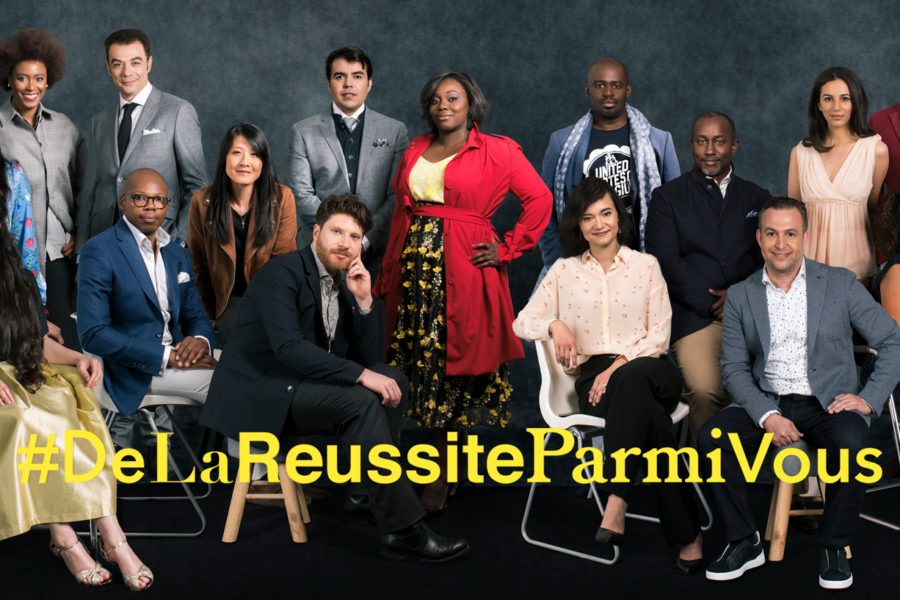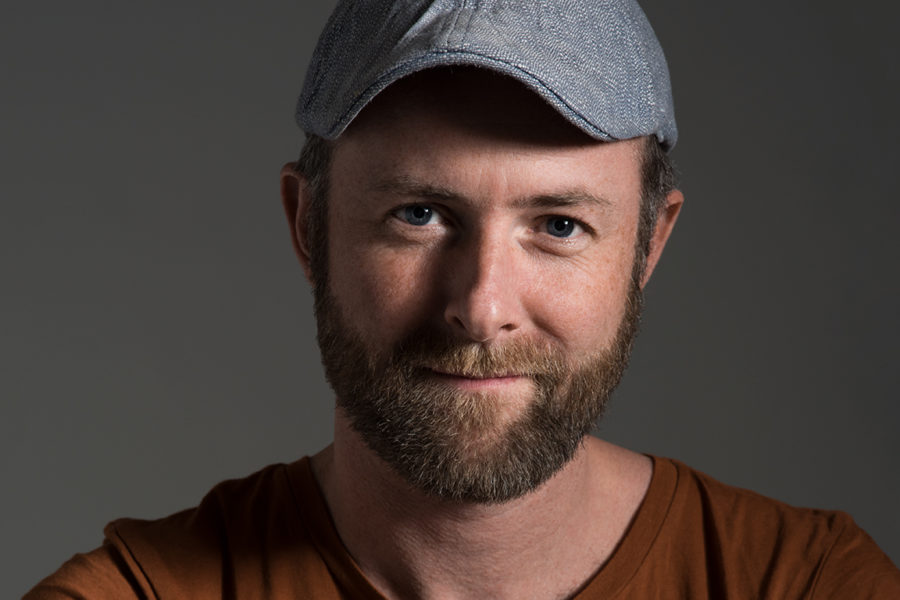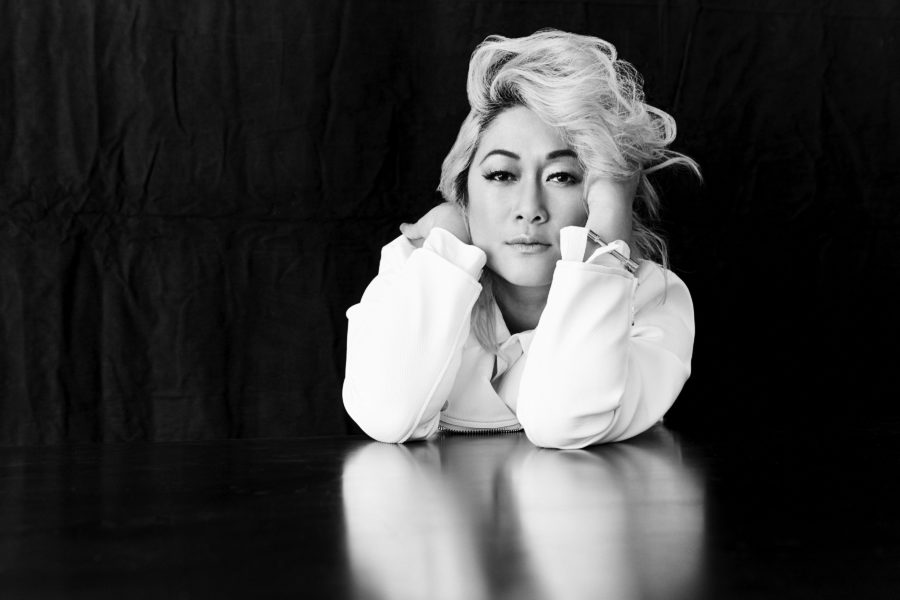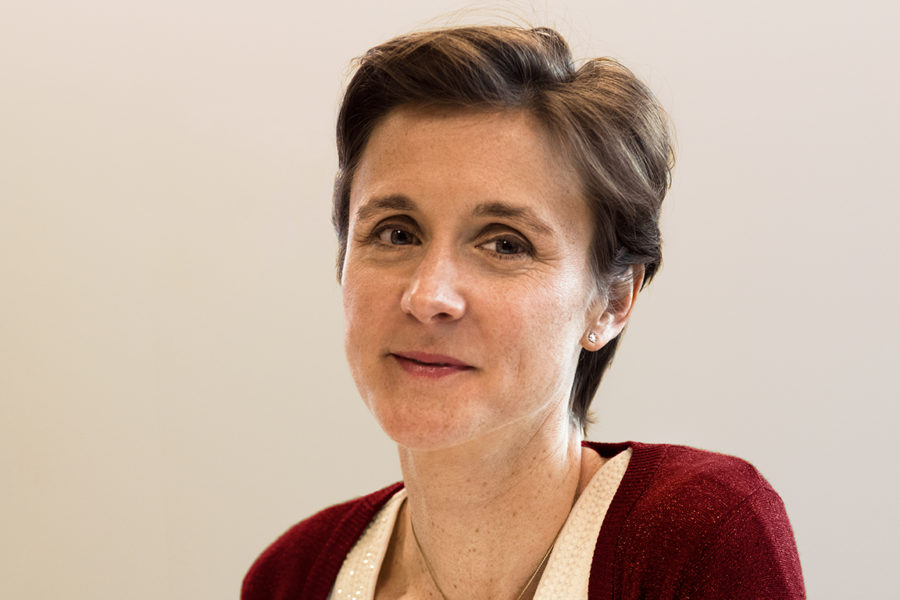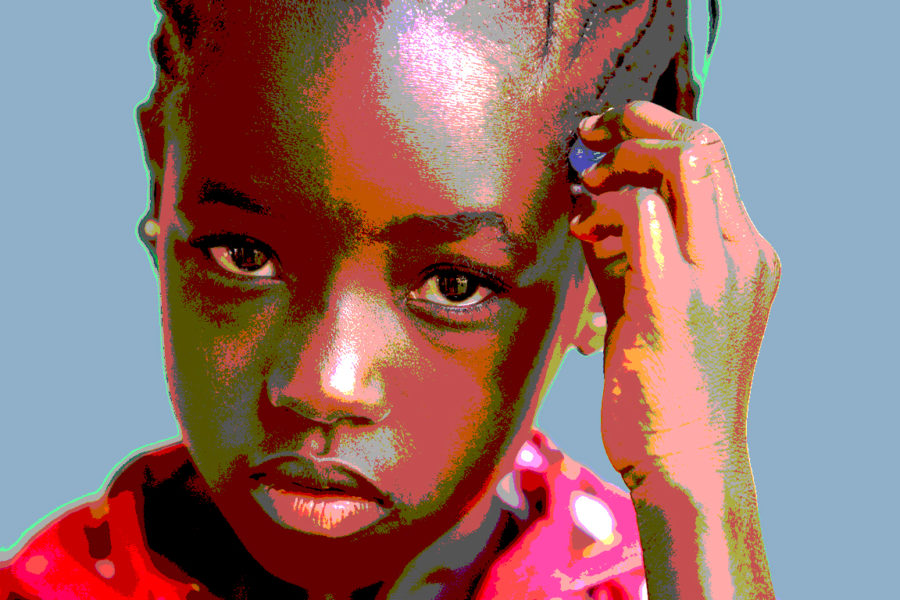With the publication of her second book, “À voie basse”, multiple hats writer Aliénor Debrocq – author, journalist and teacher – sheds new light on the reality of parenthood.
It was books that opened up the world to Aliénor Debrocq. She began creating short stories as a teenager and writing became her way to go through life. To experience it. To comprehend it. To further explore human emotions. Thus, how else could she fully exist in her maternity-to-be than through words on a page?
Contrary to common belief, she did not choose to study Literature at University. Worried that she would lose touch with her own creative writing process by learning so many rules and structures, she chose to explore another of her interests, that of Art History, and pursued this knowledge with a PhD. During her thesis years, fictional writing slowly found its way back into her life. Once a Doctor, she chose to explore other writing pathways, starting as communications manager for the classical radio station Musiq’3, then as a cultural journalist for Le Soir and Le Vif, before also becoming a contemporary literature teacher at ARTS², the Academy of Arts of Mons and at La Cambre visual arts school in Brussels. With all these multiple forms of writing, Aliénor has carved a position for herself where she can connect with both words and the world and share the resulting thoughts with us on paper.
With the publication of her second collection of short stories this year, “À voie basse”, Aliénor explores the world of new pregnancy and parenthood in full light. She openly raises a subject we still speak too little about: that with the birth of a child comes the birth of a mother. New motherhood is a process, a complex identity transition with its joys but also its challenges. Without concealing or embellishing, her characters let us enter their lives, thoughts and hearts with such humanity that they will always manage to strike a chord with us. “À voie basse” is a mind shaker for whoever is willing to look in the mirror.
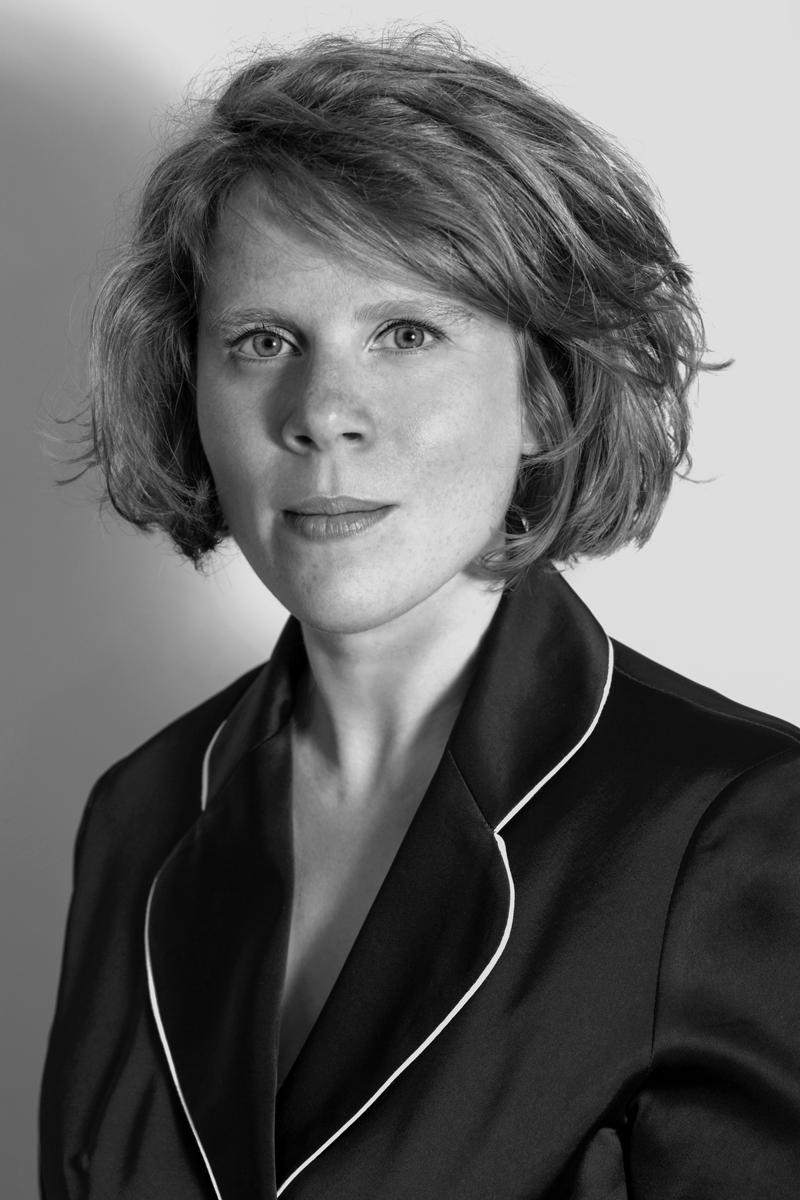
Can you tell us more about the theme of your second book?
Most of my short stories are about parenthood, but also the absence of children. I had not planned to write about maternity, or, in the case of two stories, about paternity. It is a desire to write that really came from my pregnancy experience and that continued during the first year of my daughter’s life. At that time many of my girlfriends were pregnant too and I became aware of a collective reality that becoming a mother is an identity shift. We experience tremendous joy and discover unconditional love but that’s not all there is to it. The experience of motherhood is far more complex, ambivalent and challenging. And this is a subject we are still quite silent about.
As a teacher, journalist, writer, mother, wife and a woman – or in the reverse order – how do you find the time to do everything and how do you balance your life?
The reality of my life is indeed multifaceted. I like it but at the same time it has its constraints. To live with the permanent difficulty of the double posture, that of the knowledge of the self-assured teacher and that of the doubt of the writer who is in a creative process is a permanent challenge. It is impossible for me to divide any one day between these two poles. So the moments I can write are periods when I don’t teach, for instance, summertime or winter holidays.
I find it hard to consider writing fiction as a legitimate activity in my life because it is not what supports my family. It is therefore an activity that will be inserted in the remaining time gaps. Although, I do realize that “remaining time gaps” do not exist. We have to create them. By practicing mindfulness meditation, I have learned to grant myself this time. The present is now.
I’ve also become very aware of women’s “mental burden”, that is to say being constantly preoccupied with the organization of things and the multiplicity of our roles. Even if men contribute to the housework nowadays, the invisible work of women to always manage the household on top of their personal and professional life, still applies today. If she doesn’t become conscious of this and learn to balance this “managerial position”, it can leave a woman in a mental impossibility to do anything else. Since I’m quite a tidiness maniac, in order to be able to write last summer, I had to conceal a series of things in my mind to let the disorder that creates itself around me just be. It was like a survival reflex.
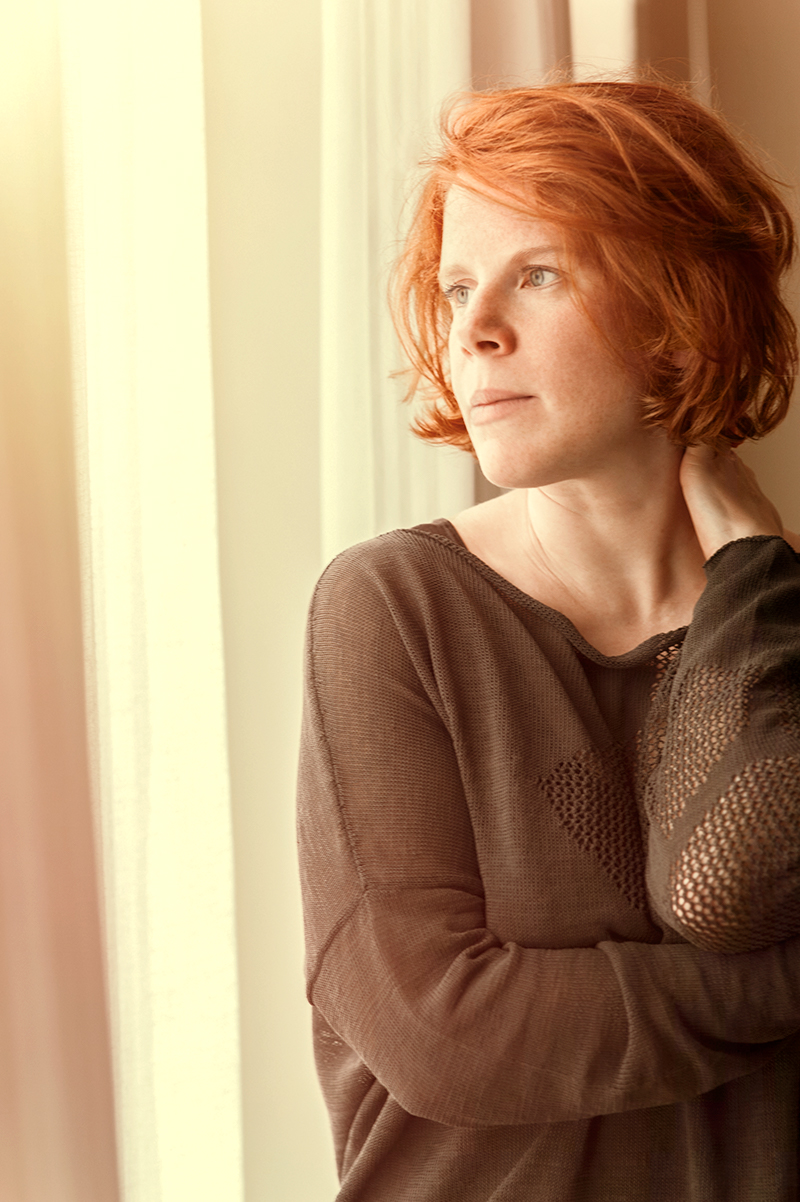 How do you describe your process of writing? Where does the inspiration come from? And did publishing your first book change anything?
How do you describe your process of writing? Where does the inspiration come from? And did publishing your first book change anything?
Writing comes to me from a sort of decantation of reality. Writing is a way for me to put myself in motion and to connect with and make sense of reality. This may be partly based on experience or observations, but not only.
After publishing my first book, I realized that for a circle of readers who knows me personally, the search for autobiographical references will of course be inevitable. But all authors are confronted with this.
I support what Paul Auster said: that it is something in itself that writes, of the order of the unconscious, and not the “I”, Aliénor, who lives her everyday life. It is a kind of instance, a voice in me.
That said, I have recently decided to try to use more elements of my direct environment when I’m writing to make experimental exercises and see where this leads me. Why pretend to divide between who I am as a person and as an author? I want to let things happen more freely.
What issues are close to your heart?
Questions of respect in this world. So the question of women’s status in society and the question of ecology, in the sense of our relationship with planet Earth, are of particular concern to me.
It is not a position that results in political adherence or clandestine actions but it is voiced through my writing, which is my way to exist. My characters often express concern about these pressing issues, some even take concrete actions. But I myself feel quite deprived. Apart from making my own compost, trying to be a good consumer and to recycle, I’m not part of an active movement. However, as a teacher I try to lean towards the values and issues that drive me when selecting documentaries or subjects exercises for my students.
À voie basse
Aliénor Debrocq
Editions Quadrature, 2017.
Photos – Vaya Sigmas



